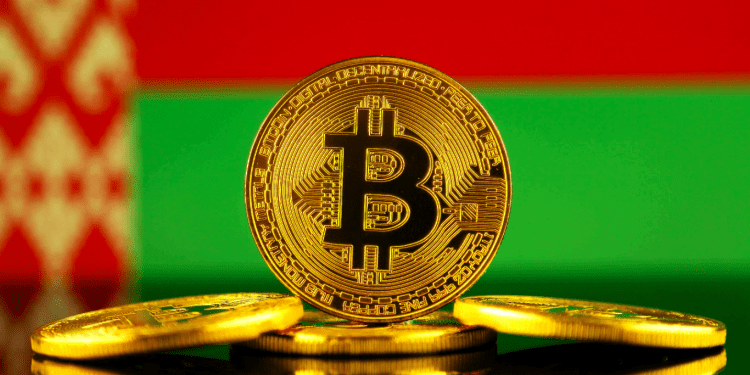Belarus has announced its intention to combat the increasing rate of cybercrime in the country by banning cryptocurrency and halting the peer-to-peer (P2P) transactions they enable.
Through a collaboration between the Ministry of Foreign Affairs and the Ministry of Internal Affairs, Belarus aims to eliminate illegal activities. While skeptics question the feasibility of enforcing the ban, Belarus remains steadfast in its commitment to crack down on illicit crypto operations.
Belarus’ Concerns
The Belarusian authorities have expressed concern regarding the high cybercrime rate, particularly concerning P2P crypto exchanges. Since January 2023, local prosecutors have intervened in the activities of 27 individuals providing illegal crypto exchange services, resulting in an accumulated revenue of approximately 22 million Belarusian rubles ($8.7 million).
The ministry highlights the demand for P2P services among fraudsters who exploit cryptocurrencies to convert stolen funds and facilitate transactions for criminal schemes.
To effectively address these issues, the Belarusian government plans to prohibit individuals from engaging in P2P transactions and restrict crypto exchanges solely to platforms registered with Belarus Hi-Tech Park (HTP).
“The Ministry of Internal Affairs is working on legislative innovations prohibiting cryptocurrency exchange transactions between individuals. For transparency and control, citizens will be allowed to conduct such financial transactions only through HTP exchanges.
The introduction of a practice similar to the procedure for exchanging foreign currencies will make it impossible to withdraw money obtained by criminal means. In such conditions, it will simply become unprofitable for fraudsters in the field of information technology to operate in Belarus.”
The Importance of Regulated Exchanges
By mandating crypto transactions solely through registered exchanges, Belarus aims to enhance transparency and exercise control over financial activities in the crypto realm. Adopting a procedure similar to foreign currency exchange, the government seeks to make it exceptionally difficult to withdraw funds obtained through illicit means. By implementing these measures, the ministry believes that information technology fraudsters will find it unprofitable to operate within Belarus.
Contradictory Legislation
The recent legislative developments in Belarus contradict the country’s stance on cryptocurrencies. In 2022, President Alexander Lukashenko signed a decree affirming Belarus’ support for the free circulation of cryptocurrencies, including Bitcoin.
Nevertheless, considering the rising cybercrime rate and the potential misuse of P2P exchanges, the government has adopted a stricter approach to regulate the crypto market.
Conclusion
Belarus has taken proactive measures to address cybercrime and safeguard its financial system by implementing regulations restricting P2P transactions in cryptocurrencies. The government’s focus on promoting transparency and exercising control through registered exchanges underscores its determination to combat illegal activities.














